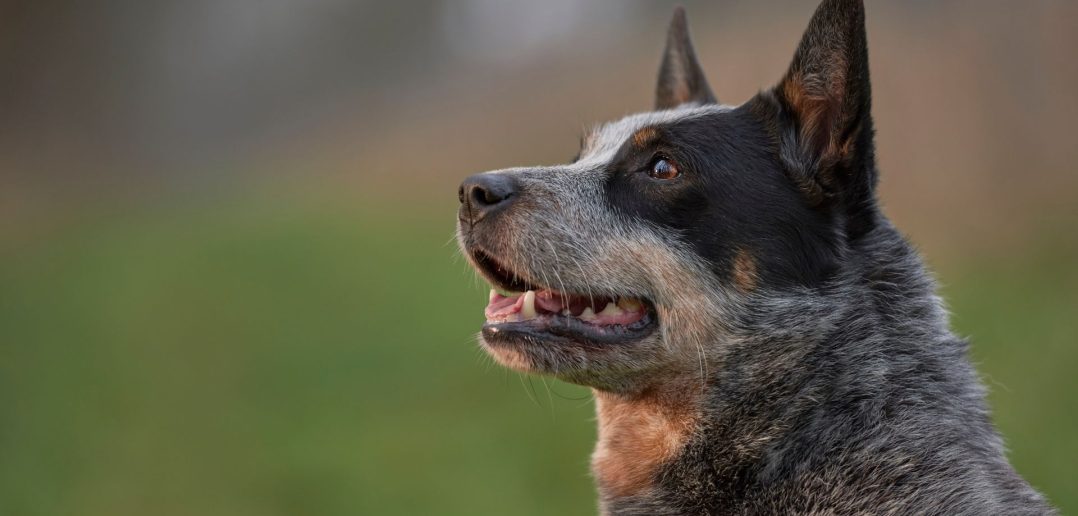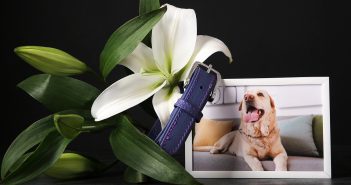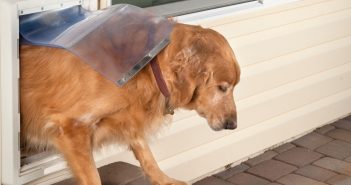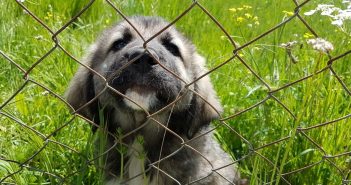The Australian Cattle Dog (ACD), also known as the Blue Heeler or Queensland Blue Heeler, is one of the most intelligent and energetic working breeds. Originally bred in 19th-century Australia these dogs were bred to be strong and tenacious enough to withstand the continent’s conditions while herding cattle over vast and rugged landscapes.
Known for their sharp minds, unwavering loyalty, and boundless energy, Australian Cattle Dogs are highly trainable but require dedicated owners who can meet their mental and physical needs.
A Breed Built for Work
While the breed’s exact origins remain debated among breeders, it’s believed that Dingoes, Dalmatians, Bull Terriers, Smooth Haired Scotch Merle Collies (themselves a cross-breed between the Rough Haired Scotch Collie and the Blue Italian Greyhound), and Australian Kelpies were selectively bred to create a resilient, intelligent, and tireless herding dog suited for the Australian outback. This mix resulted in a highly adaptable working dog with exceptional endurance and strong problem-solving abilities.
Physical Characteristics
Australian Cattle Dogs are medium-sized, muscular and compact, built for endurance and agility. Full grown adult cattle dogs dogs typically weigh 30-50 pounds and stand 17-20 inches tall at the shoulder. They move adeptly and devote themselves fully to their work at hand (or paws, if you like).
A distinctive feature of the breed is its double-layered coat, designed for protection against harsh weather. Although they appear solely white upon birth, as they age, their blue or red coloring appears. Coat variations include:
- Blue
- Blue speckled
- Blue mottled
- Red speckled
- Red mottled
Whatever color they become, their outer coat will endure harsh weather, and their inner coat contains shorter, kinkier hair. While they don’t shed year-round, they do experience a yearly shedding period of about two weeks. Weekly brushing with a firm bristle brush helps remove loose fur and prevent matting. Unlike many breeds, Australian Cattle Dogs rarely need baths, as their coat naturally repels dirt.
Temperament: Intelligent, Loyal, and High-Energy
The Australian Cattle Dog is sharp, hardworking, and deeply loyal. These dogs bond intensely with their owners and thrive when given a job to do—whether it’s herding livestock, mastering agility courses, or learning complex tricks. Their intelligence makes them quick learners, but also strong-willed, so they do best with firm, consistent training from an early age.
These dogs do best with:
- Active owners – They need daily exercise such as running, hiking, agility training, or herding work.
- Engaging activities – Puzzle toys, obedience training, and structured playtime help prevent boredom.
- A purpose – Without a job to do, they may develop destructive behaviors due to pent-up energy.
Apartments and homes without bigger yards are not practical places to house them – big running spaces are ideal for them to get their exercise. These dogs make great running or jogging companions as well, provided you don’t allow them to run ahead of you.
These cattle dogs do get along decently with children and other dogs they’ve been raised around, but as loyal watchdogs and protectors, they are typically wary of strange dogs and humans. They do not tend to mix well with cats at all.
Training and Socialization
Those who are considering adding a Cattle dog to the family should also know that their stubborn tendencies mean the connection you seek may not be instantaneous.
Training an Australian Cattle Dog requires patience and consistency. Their strong herding instincts can lead to behaviors like nipping at heels, so early training is essential to set boundaries. These dogs are highly trainable but need an owner who provides structure and leadership to prevent stubborn or dominant behaviors.
Training tips:
- Start young – Early training ensures they develop into well-mannered adults.
- Positive reinforcement works best – Reward-based training keeps them engaged.
- Socialize early – Exposure to different people, dogs, and environments helps them become well-adjusted.
With proper guidance, Australian Cattle Dogs become highly obedient, reliable companions.
Health and Longevity
With proper care, Australian Cattle Dogs can live 12-16 years. While generally healthy, they are prone to a few inherited conditions, including:
- Deafness – More frequently seen in red-coated Australian Cattle Dogs.
- Hip Dysplasia – A common joint issue in active breeds.
- Progressive Retinal Atrophy (PRA) – A genetic eye disease that can lead to blindness.
Regular veterinary check-ups, a healthy diet, and plenty of exercise contribute to their overall well-being.
Dog Food & Supplements
These options are popular, well-rated, and cater to the nutritional requirements of active breeds like Australian Cattle Dogs.
- American Journey Protein & Grains (high protein fuel for active dogs)
- American Journey Soft & Chewy Training Bits – (choose beef, chicken, or salmon)
- Zesty Paws Hip & Joint Mobility Chews (useful for preventing hip dysplasia)
It’s always a good idea to consult with your veterinarian to determine the best diet for your individual dog’s health and activity level!
Is This the Right Breed for You?
The Australian Cattle Dog is an incredible breed, but they aren’t suited for every household. They thrive with active families who can provide them with the exercise, mental stimulation, and training they need.
If you’re looking for a devoted, energetic, and highly intelligent companion, this breed might be perfect for you!
Australian Cattle Dog Rescue
If you’re interested in this breed, why not consider giving an ACD in need a forever home. Check out these online resources for finding your new pet:
- AuCaDo Australian Cattle Dog Rescue – AuCaDo is dedicated to rescuing Australian Cattle Dogs and mixes, ensuring they are spayed/neutered, vaccinated, microchipped, and heartworm tested before placement. They focus on rehabilitating and rehoming these dogs into suitable, loving environments.
- Rescue Me! Australian Cattle Dog Rescue – Rescue Me! is a platform that allows individuals and shelters to post Australian Cattle Dogs available for adoption. It serves as a nationwide directory to connect potential adopters with dogs in need.
- Australian Cattle Dog Rescue Association (ACDRA) – his organization promotes and assists in the rescue of purebred Australian Cattle Dogs across the United States and Canada. They provide education on responsible pet ownership and offer guidelines for adopting ACDs from shelters and owners who can no longer keep their dogs.
- Chewy’s Dog Adoption Listings – Browse adoptable Australian Cattle Dogs from shelters and rescues across the U.S. Chewy’s adoption platform connects potential pet parents with dogs in need, updating regularly with new listings. You can browse by location and by breed.
By adopting, you’re not only gaining a loyal companion—you’re also changing a dog’s life for the better!





1 Comment
I love cattle dogs! We have a blue ACD appropriately named Blue. They are very tough dogs and generally very smart dogs (though ours has a little to be desired in the smarts department!) They are great natured and high energy and will always keep you on your toes. Great history post on the breed.
.-= Christy Mesker´s last blog ..Pet Research Was Groomed! =-.